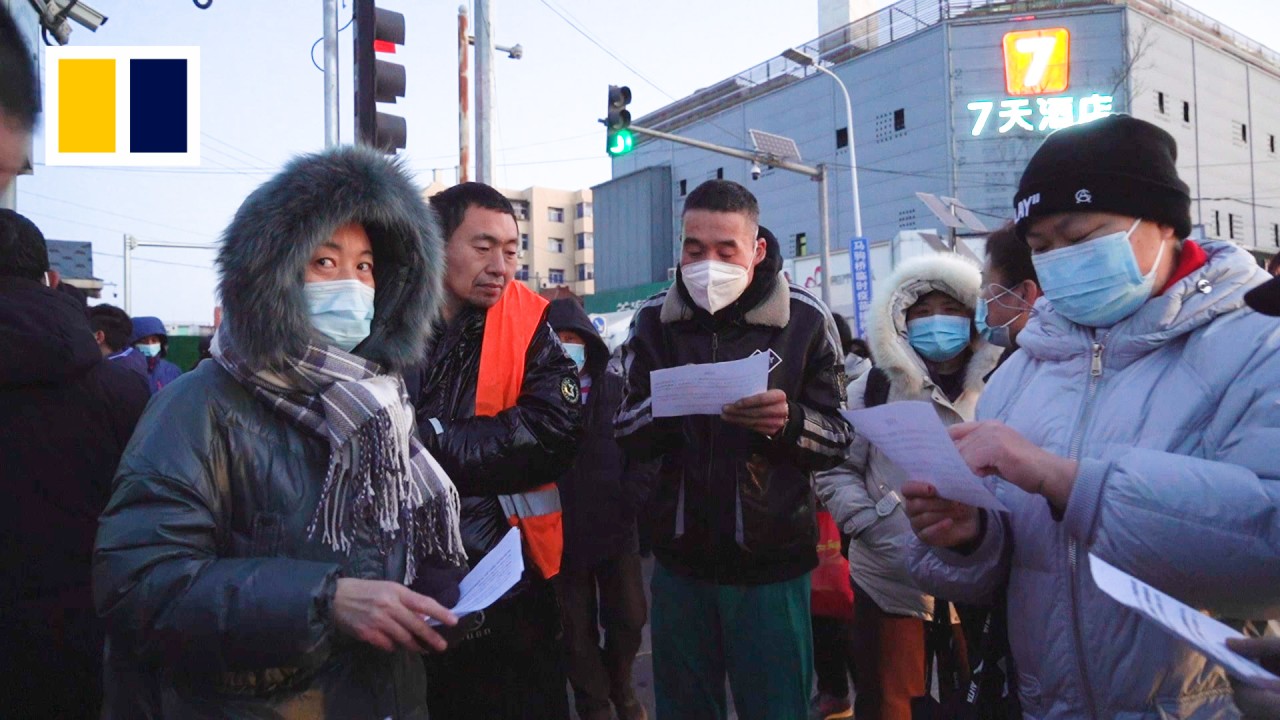
Chinese scientists warn crippling red tape, restrictions risk balking Beijing’s bid to create ‘new productive forces’
- Government adviser warns of continued impediments to scientific progress from bureaucratic red tape and the pursuit of recognition over concrete innovation
- Minister of science and technology also vows steps will be taken to free young talent from tedious tasks, in line with President Xi Jinping’s push for tech self-sufficiency
Beijing has acknowledged that the way Chinese scientists go about conducting research – often finding themselves over-encumbered by arduous red tape and becoming obsessed with recognition as they compete for funding – is impeding progress in the nation’s push for “productive forces” that drive innovation and tech self-sufficiency.
And government advisers have renewed long-standing calls for reforms to reduce burdens in academia, meet the needs of scientists and recruit fresh minds into research fields while promoting their ideas and turning them into concrete results.
Young talent, in particular, remains hindered by red tape despite repeated pleas and promised efforts to ease such burdens.
These weigh on the country’s ambitions to push for tech-led economic growth, according to Yuan Yaxiang, a national committee member of the Chinese People’s Political Consultative Conference, which advises and submits proposals to government bodies on political and social issues.
‘Unacceptable and upsetting’: South Korea laments lost edge to China in key tech
“The unreasonable formats and bureaucratic requirements are all too common, with some forms and application procedures neglecting the needs of scientific researchers,” Yuan, who is vice-chairman of the China Association for Science and Technology, told the press last week during the “two sessions” parliamentary gatherings in Beijing.
“These tasks frequently demand extensive, repetitive and low-tech labour,” he said.
Also during the “two sessions”, Science and Technology Minister Yin Hejun expressed commitments by leadership to reduce such burdens and advance progress.
“The purpose is to free young tech talent from tedious tasks such as procurement, reimbursement and paperwork, ensuring they have sufficient time for research,” Yin told the media.
A work report and budget released by the National Development and Reform Commission last week also signalled that the government would channel more funds into the science and technology needed to make such a wholesale economic transition.
The allocations align with Beijing’s push for self-reliance on fronts ranging from chipmaking to artificial intelligence as it bids to counter tech-containment moves by the West and to wrest technological supremacy from the United States.
CPPCC member Yuan said the fact that scientific researchers frequently become entangled in cumbersome bureaucracy exposes fundamental issues within the research-management system.
He also said it reflects a gap between the mechanisms of scientific innovation and the development of productive forces in the new era.
China’s ‘two sessions’: Xi tells scientists to fight the tech battle well
One problem targeted by special initiatives is known as the “four only” phenomenon of recognising and rewarding only papers, titles, diplomas and awards. But despite efforts, it continues to weigh on academic researchers in China.
Moving forward, Minister Yin vowed to roll out policies that encourage institutions to allocate more than half of their basic research funding to individuals under the age of 35. Additionally, in the evaluation of key laboratories, the cultivation of young researchers will be emphasised as a significant assessment criterion.
And he said efforts will also be taken to address and improve some pressing livelihood concerns, including salary benefits, researchers’ mental and physical health, and their family lives.
Many Chinese scientists have lamented that difficulties persist in obtaining funding in the early stages of scientific research, owing to a lack of prior achievements. Their requests include greater allocations of non-competitive funding that ensure scientists are funded in the early stages when they need resources the most.
In many research institutions, grants and special projects – often dubbed “hats” worn by scientists – are closely linked to internal funding and resource allocation, while having such hats can provide them with a competitive advantage in external funding applications.
Such hats tend to be directly associated with individual salaries, housing benefits, job appointments and promotions, but the pursuit of these can lead to an overemphasis on notoriety rather than encourage the focus to remain on real scientific innovations.


